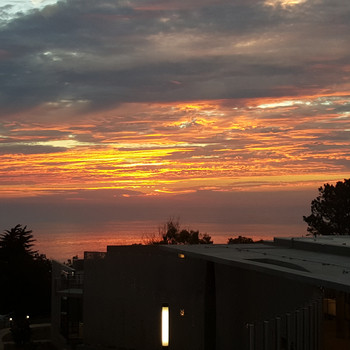Can you explain different types of natural disasters?
1 Answer
Floods, hurricanes, tornadoes, droughts, earthquakes and tsunamis, and finally volcanic eruptions are all considered to be natural disasters.
Explanation:
I'll quickly expound upon each of these below:
Floods
Floods occur when a normally dry area becomes wet (when you wish you traded you Pontiac for a kayak you're probably experiencing a flood). Floods can cause massive structural (water damage to buildings), environmental (displacement of trash or chemicals), and health (growth of molds, optimal environment for bacterial growth) problems.
Floods are usually the result of torrential rainfall or infrastructure failure (typically a result of another natural disaster).
In 2015 Houston, Texas received between 10 and 14 inches of rain overnight (from Tropical Storm Allison), this was the result:
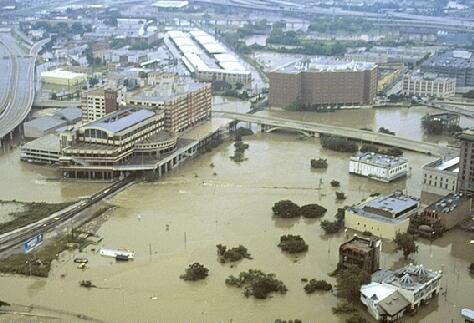
Courtesy of: https://commons.wikimedia.org/w/index.php?curid=3525092; Originally obtained from the: Publication of the National Oceanic & Atmospheric Administration (NOAA) Photo Library (Public Domain)
Hurricanes
Hurricanes are the result of the evaporation of warm water, the warm water is full of energy, usually when the heat dissipates because the wind in the upper atmosphere cools it down however when there is no wind the heat energy stays concentrated resulting in a hurricane (a very powerful storm with strong winds).
The most destructive hurricane in recent history was Hurricane Katrina (2005) costing 145 billion US dollars. Hurricanes often result in infrastructure damage due to their high winds the this is exactly what transpired when the ailing levees (which hold back Lake Pontchartrain) broke in New Orleans, Louisiana:
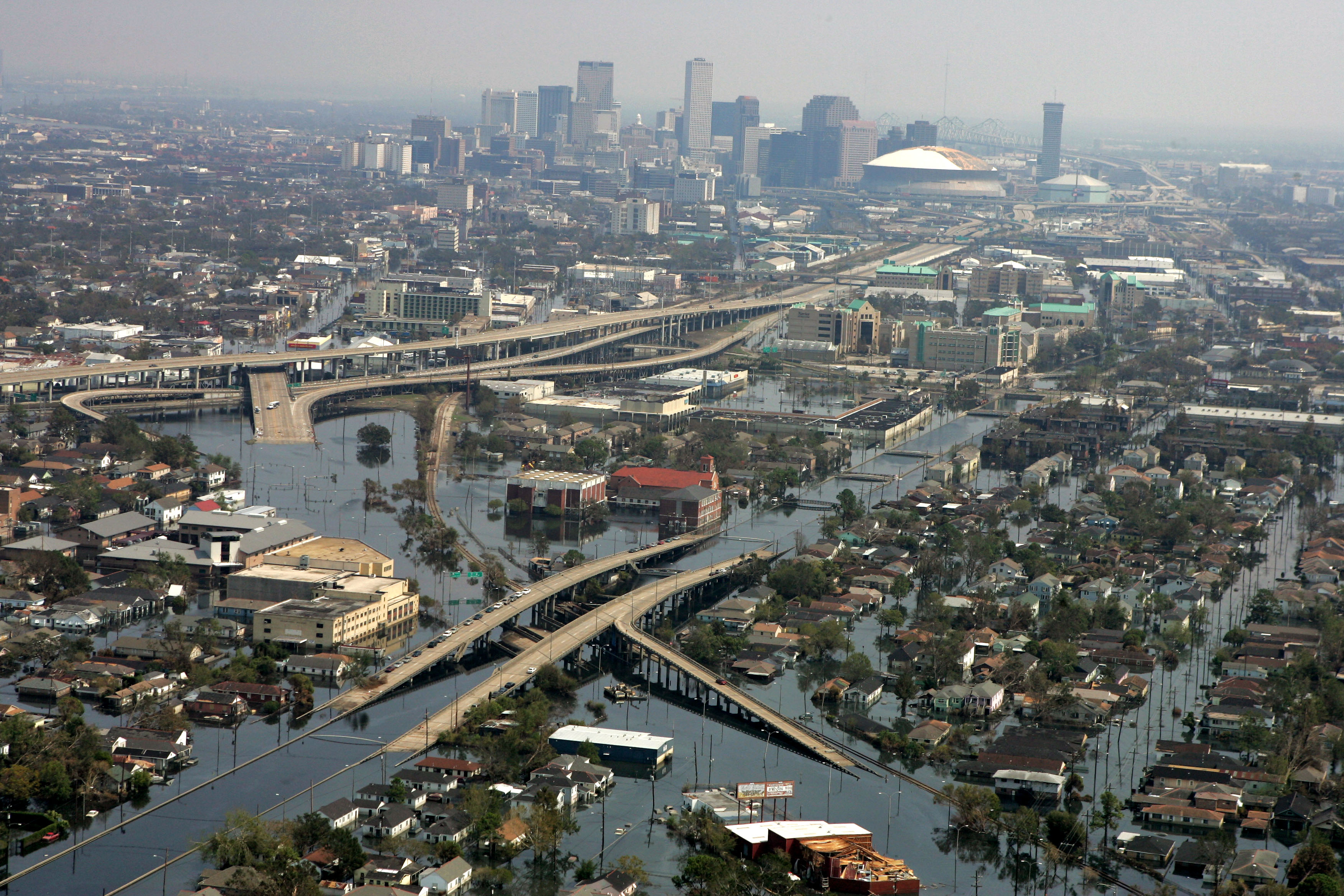
**Courtesy of: http://www.usnews.com/news/articles/2015/08/28/new-orleans-economic-resurgence-after-hurricane-katrina**
Tornadoes
Tornadoes are highly destructive storms, they start their life as a giant thunderstorm (called a supercell). When warm, moist air (in the US this comes from the Gulf of Mexico) and cold, dry air (from Canada in the US) meet they result in atmospheric instability and a tornado. Here's a video can can explain the super-science a lot better than I ever could:
A tornado was responsible for decimating Joplin, Missouri in 2011, this was the aftermath:
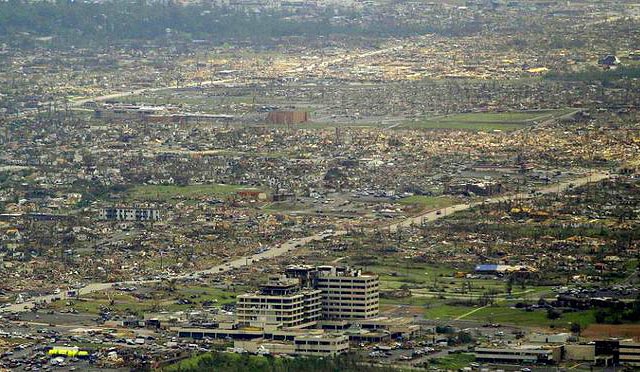
**Courtesy of: http://fox41blogs.typepad.com/wdrb_weather/2013/05/may-22-2011-the-joplin-ef-5.html**
Droughts
Droughts are probably the least obvious of all natural disasters mainly because they don't cause widespread destruction or dramatic, headline worthy pictures. However droughts kill crops resulting in famine, starvation and malnutrition ensue and people die. In fact droughts are the most pervasive of all the natural disasters.
Any of the lakes or dams in Southern California are a perfect example of a drought, below I've included a picture of boat docks at Folsom Lake:
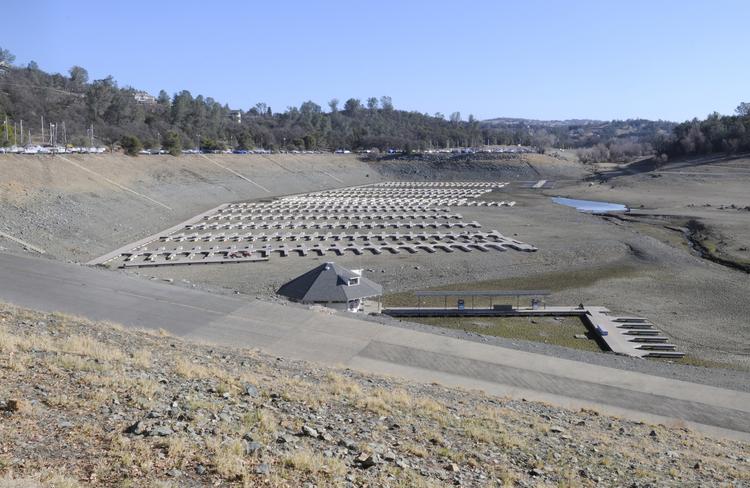
Courtesy of: http://www.bizjournals.com/sacramento/news/2014/01/22/dry-times-at-folsom-lake-slideshow.html
Earthquakes and Tsunamis
Earthquakes are the result of moving pieces of land called tectonic plates. When these plates move over one another they result in an earthquake. When an earthquake occurs near or under the surface of the ocean it results in a tsunami.
The best example of this is the Tōhoku earthquake and tsunami that struck Japan in 2011:
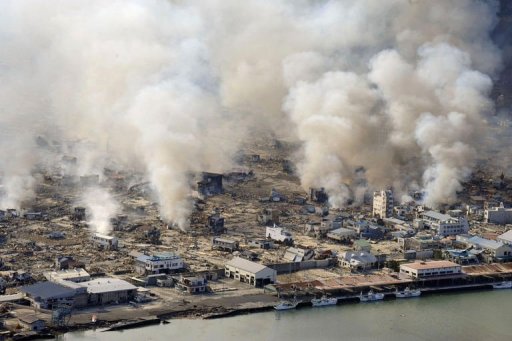
**Courtesy of: http://phys.org/news/2011-03-quake-japan-feet-usgs.html**
Volcanic Eruptions
Volcanic Eruptions occur when magma builds up under a volcano resulting in pressure, the volcano releases the pressure by spewing the magma out as lava and sometimes sending dirt, dust, and lava into the air. This results in damage to anything in the lava's its path.
To exemplify this, here's Iceland's Bardarbunga Volcano:
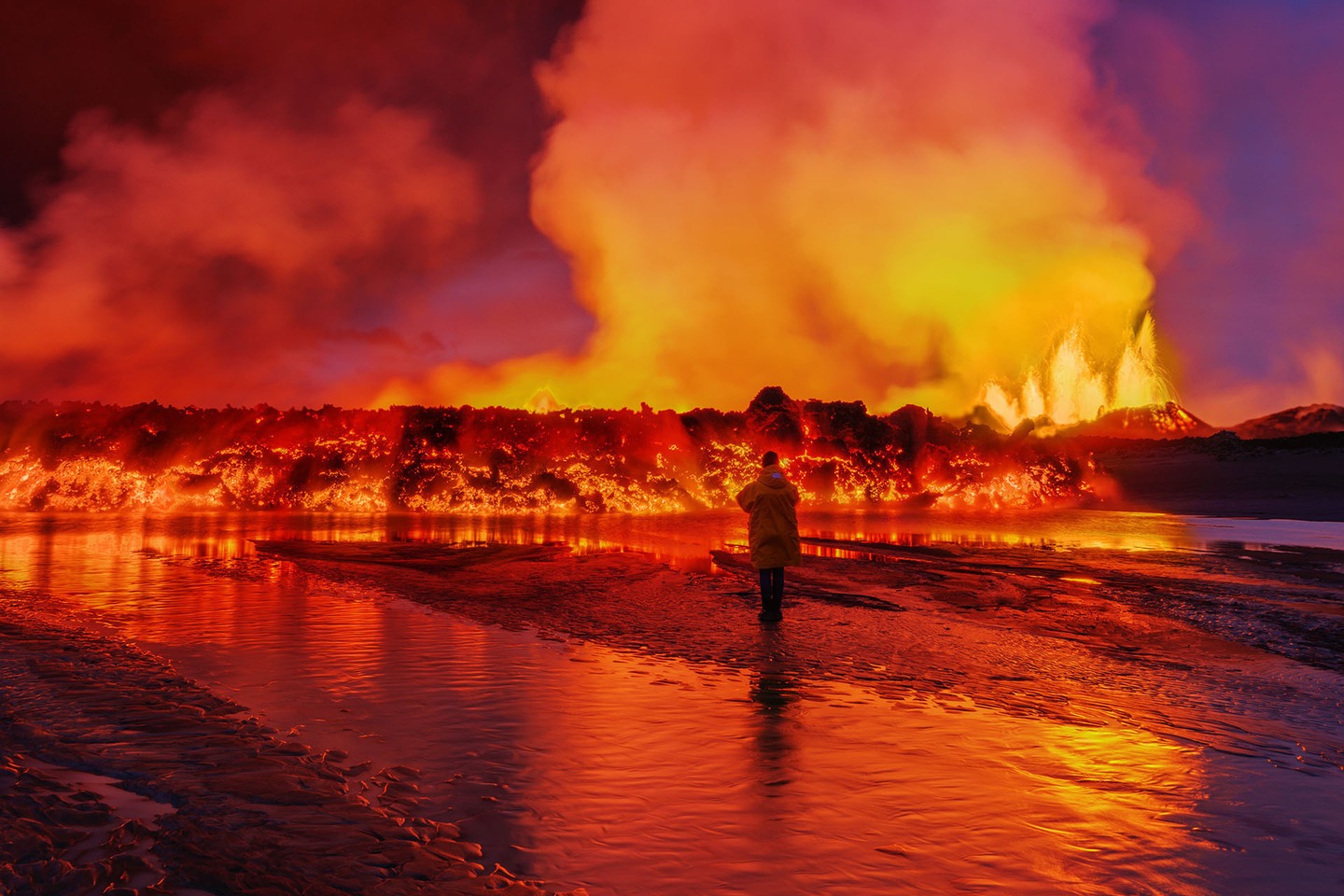
**Courtesy of: http://mashable.com/2014/09/11/iceland-bardabunga-volcano-eruption-photos/#5qPK3ecdaPqj**
I know this was longer than I said it would be but I hope it helped!
